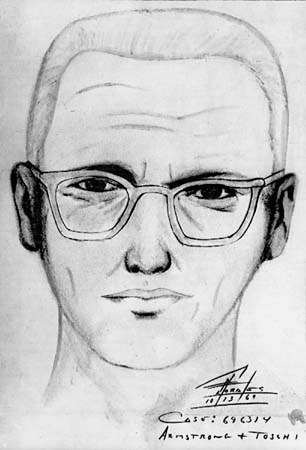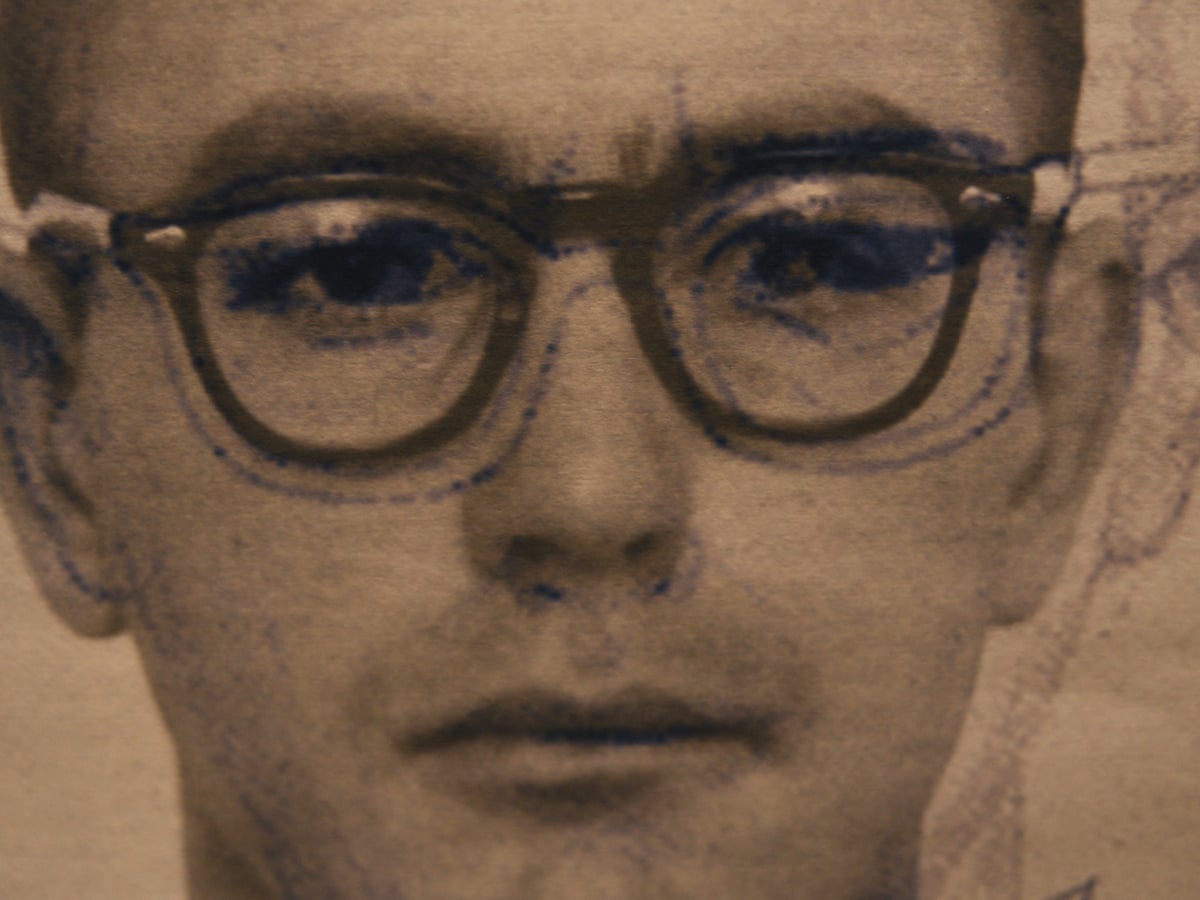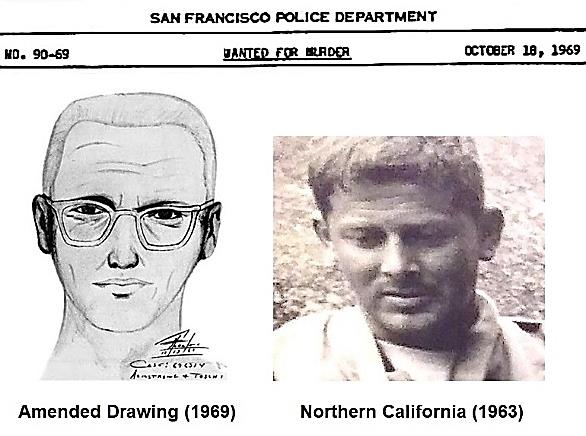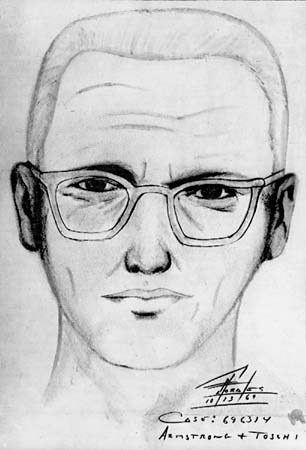The Zodiac Killer remains one of the most chilling and mysterious serial killers in American history. Terrorizing Northern California between 1968 and 1969, this unidentified murderer not only claimed five confirmed victims but also taunted law enforcement and media with cryptic letters and complex ciphers.

The infamous police sketch and cipher of the Zodiac Killer. Source: Wikipedia
In the late 1960s, a shadowy figure emerged who would become synonymous with fear and intrigue. The Zodiac Killer’s first confirmed attacks struck at the heart of peaceful communities in Benicia, Vallejo, and San Francisco. Young couples became targets, with the killer systematically attacking lovers’ lanes and creating a climate of widespread terror.
The murders were calculated and brutal. On December 20, 1968, high school students David Faraday and Betty Lou Jensen were shot at Lake Herman Road – the first known Zodiac victims. Just months later, on July 4, 1969, Darlene Ferrin and Michael Mageau were attacked at Blue Rock Springs Park, with Ferrin dying from her wounds.

Investigators examining evidence in the Zodiac Killer case. Source: The Guardian
What set the Zodiac apart was not just his murderous spree, but his obsessive need to communicate. He sent meticulously crafted letters to local newspapers, challenging investigators and the public. These communications were filled with misspellings, complex ciphers, and a chilling narrative of his murderous intentions.
Two of his four ciphers were eventually decoded. The first, the Z408, revealed a disturbing manifesto about his motivations: “I like killing people because it is so much fun.” The Z340 cipher, solved 51 years after its creation, further demonstrated the killer’s twisted psychology and desire for recognition.

Composite sketch of the primary suspect. Source: University of Maryland
While many suspects emerged over decades, Arthur Leigh Allen remained the most prominent. A former elementary school teacher and convicted sex offender, Allen was extensively investigated but never definitively linked to the crimes. He died in 1992, taking potentially crucial answers to the grave.
Investigators interviewed Allen multiple times, and circumstantial evidence seemed to point towards him. However, conclusive proof remained elusive, keeping the Zodiac’s true identity a haunting mystery.
Forensic science has evolved dramatically since the 1960s. DNA analysis, digital investigation techniques, and crowdsourced cryptography have offered new hope in solving this cold case. In 2020, an international team finally cracked the Z340 cipher, reigniting public fascination.
The Zodiac Killer has become more than a criminal – he’s a cultural phenomenon. Documentaries, books, and films like David Fincher’s Zodiac have ensured that this unsolved mystery continues to captivate generations.
Decades after his last confirmed murder, the Zodiac Killer remains an enigma. With claims of 37 victims and only five confirmed kills, his true extent of violence may never be known. The case stands as a testament to human complexity, the limitations of forensic technology in the late 1960s, and the enduring human desire to understand the incomprehensible.
The hunt continues, and the legend of the Zodiac Killer lives on – a chilling reminder of a darkness that once terrorized Northern California.
References:
Zodiac Killer – Wikipedia – link
The Guardian – Zodiac Killer Documentary – link
UMD Forensic Expert Investigation – link
Categories: Criminal Investigation, Historical Events, True Crime, Unsolved Mysteries, Unsolved Mysteries
Tags: California Crime, cold case, Criminal Investigation, Cryptography, Serial Killer, true crime, unsolved mysteries, Zodiac Killer
Religion: Unknown
Country of Origin: United States
Topic: True Crime
Ethnicity: unknown


